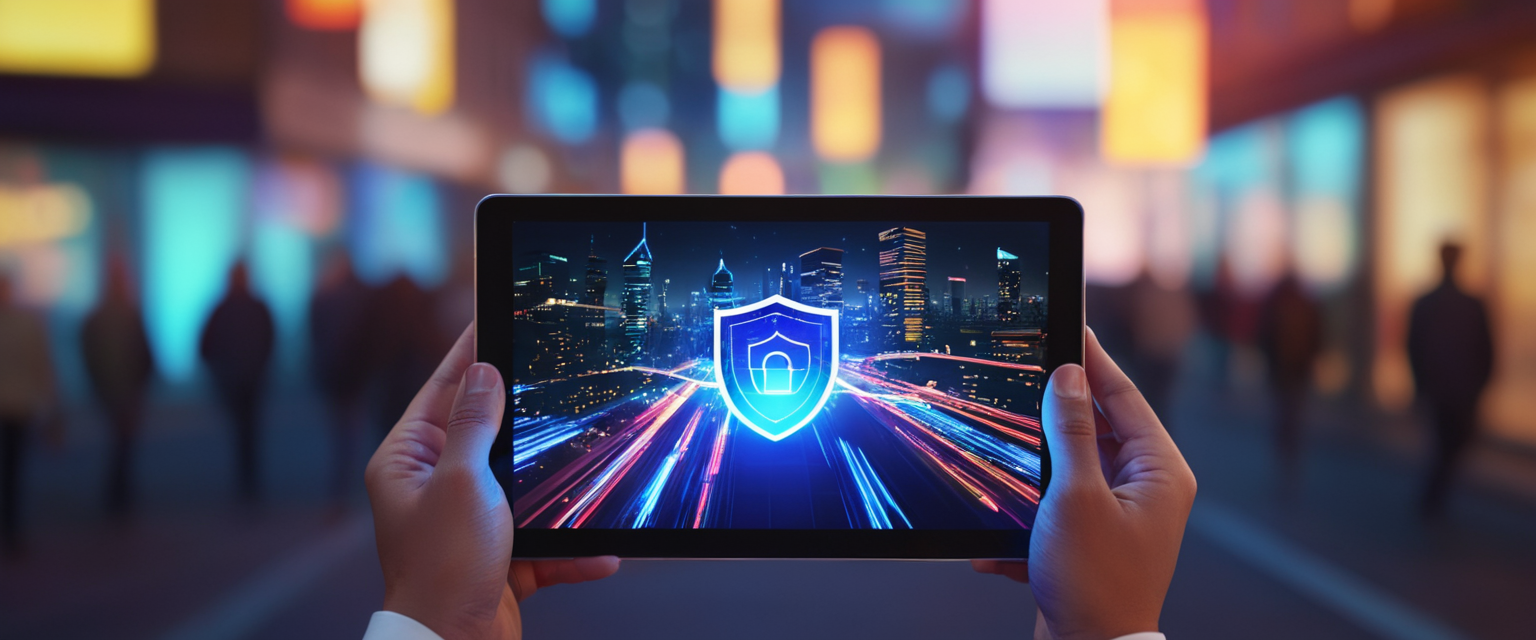
Urban VPN represents one of the most accessible free Virtual Private Network solutions available today, having accumulated over 70 million downloads and 25 million users worldwide. This comprehensive guide examines the practical aspects of installing and utilizing Urban VPN across various devices and platforms, exploring its architecture based on a peer-to-peer network model rather than traditional dedicated servers, understanding its encryption mechanisms using OpenVPN protocol with AES-256 standards, and evaluating its real-world performance for different use cases. While Urban VPN offers genuinely free access without account requirements for desktop users, it simultaneously presents distinct security considerations and performance characteristics that distinguish it from conventional VPN services, making it essential for potential users to understand both its capabilities and limitations before deployment. The following analysis synthesizes installation procedures, feature functionality, security implications, and practical usage recommendations across Windows, macOS, Android, iOS, and browser-based platforms.
Understanding Urban VPN’s Foundational Architecture and Technology
VPN Technology Fundamentals and Urban VPN’s Implementation Approach
To properly use Urban VPN, one must first comprehend how it functions within the broader context of Virtual Private Network technology. A VPN fundamentally works by creating an encrypted tunnel between a user’s device and a remote server, establishing a secure connection through multiple procedural steps. When a user activates a VPN connection, the device establishes communication with a VPN server operated by the service provider, after which the VPN encrypts all data—including information, files, and web traffic—rendering it unreadable to potential interceptors whether they be hackers on shared Wi-Fi networks or entities attempting to monitor browsing activity. The user’s internet traffic is subsequently routed through the VPN server, which could be located in any country, creating the appearance of browsing from the server’s location while masking the actual IP address. Once data reaches the VPN server, it undergoes decryption and is sent to its intended destination such as websites, applications, or services, with responses traveling back through the encrypted tunnel, ensuring end-to-end encryption maintains privacy and location anonymity.
Urban VPN distinguishes itself through its peer-to-peer network architecture, a fundamentally different approach from conventional VPN providers. Rather than routing traffic exclusively through company-owned data center servers as traditional VPNs do, Urban VPN’s free service leverages a crowdsourced infrastructure where users share their bandwidth and IP addresses to route each other’s traffic. This means when connecting to a server location like Japan through Urban VPN’s free service, the user is literally connecting to another Urban VPN user’s device in Japan rather than accessing a dedicated server. Simultaneously, once a user becomes part of the Urban VPN peer-to-peer network, their device may route other users’ traffic when those users select the original user’s location. This innovative but controversial architecture enables Urban VPN to offer completely free service without requiring traditional server infrastructure investments, though it introduces unique security and performance implications that users must understand before adoption.
Encryption Standards and Security Protocol Implementation
Urban VPN employs OpenVPN protocol with AES-256 encryption to protect user data. The AES-256 encryption standard represents military-grade cryptography considered robust enough that even the U.S. military deems it safe for protecting top-secret documents. When users activate Urban VPN and select a server location, the Urban VPN client initiates a secured and encrypted connection to the selected VPN server. The next phase establishes a VPN tunnel between the user’s client and one of Urban VPN’s servers using encrypted cryptographic keys, preventing anyone including Internet Service Providers from tracking the internet connection. The VPN server then acts as an intermediary between the user and the internet, sending and receiving requests and transmitting them back to the user in encrypted form. This encryption layer creates the foundation of Urban VPN’s security model, though the peer-to-peer architecture introduces complications regarding how that encryption functions in practice compared to traditional VPN services.
Platform-Specific Installation and Setup Procedures
Installing Urban VPN on Windows Operating Systems
For Windows users, Urban VPN offers the most straightforward installation process among desktop operating systems. The setup begins by either downloading the Urban VPN application directly from the official Urban VPN website or searching for “Urban VPN” through the Google Chrome web store if preferring browser extension functionality. Users on Windows 11, Windows 10, Windows 8, and Windows 7 can all successfully install Urban VPN, which ensures compatibility across diverse Windows environments. The three-step installation process for the desktop application is remarkably simple: first, users download and install the Urban VPN application for Windows, then right-click the Urban VPN taskbar icon, and finally select the desired VPN geography from the dropdown menu. For those encountering installation issues, the system requires ensuring administrative rights on the Windows account. If the user lacks administrative privileges, they should either run the installation under a different Windows user with admin privileges, or right-click the installation file and select “Run as administrator” to initiate proper installation.
Once successfully installed, Urban VPN provides desktop users with approximately 80 to 82 server locations spanning major cities worldwide. The Windows implementation uses OpenVPN protocol, which ensures maximum security and speed. The user interface presents an exceptionally intuitive design where after installation, users need only click the play button next to their selected VPN location to establish a connection. Multiple sources describe this process as genuinely quick and effortless, requiring minimal technical knowledge. Windows users benefit from the ability to choose whatever server location they desire from a dropdown list of approximately 80 countries, allowing them to browse from any internet browser on their Windows machine with complete flexibility. For users experiencing specific connection issues, Urban VPN provides troubleshooting resources addressing common problems like setup errors ending prematurely, though these typically relate to system-level configuration rather than application design.
Configuring Urban VPN on macOS Devices
macOS users follow a similarly straightforward installation pathway, though with platform-specific considerations. The installation process begins by downloading the Urban VPN application from the macOS App Store, followed by installation of the application to the device. Like Windows users, macOS users then right-click the Urban VPN taskbar icon and select their desired VPN geography. Urban VPN for macOS also employs the OpenVPN protocol, ensuring maximum security and speed consistent with the Windows implementation. The application is optimized for privacy, high-speed connections, unlimited bandwidth, and maintaining secure connections while hiding the user’s IP address, and this optimization applies completely free to download on macOS.
The macOS version integrates seamlessly with Apple’s ecosystem while maintaining full feature parity with Windows regarding server selection and encryption standards. Users report that the macOS interface functions intuitively, allowing for rapid connection establishment and server switching when needed. macOS users particularly appreciate the ability to switch between server locations instantaneously, enabling quick access to geo-restricted content or optimal server selection based on current network conditions. The application remains consistently active in the system tray, allowing single-click activation or deactivation based on user preference.
Mobile Platform Implementation on Android Devices
Android users have two distinct Urban VPN versions available: a free version and a premium version, with both offering military-grade security and end-to-end encryption. While both versions provide robust encryption, the premium version guarantees speedier connections with unlimited bandwidth, whereas free users may experience occasional speed limitations. The setup process for Android is elegantly simple, requiring only three straightforward steps. First, users search for “Urban VPN” in the Google Play Store and download the application directly. Second, users install the application by opening it and configuring settings by following on-screen prompts. Third, users connect to the needed server and begin browsing securely.
Urban VPN ensures protection for Android users from harmful advertising and from malware and other vulnerabilities when using public Wi-Fi connections. The Android implementation allows users to select a VPN location from approximately 80 countries worldwide, tapping on ‘locations’ within the application interface to choose a server. Many users particularly appreciate this functionality for bypassing geographical restrictions and accessing otherwise unavailable content on their Android devices. However, Android free users face data limitations, with free versions typically restricting access to 100MB per day, which equals approximately 3-5 minutes of video streaming at most. This limitation has generated mixed user feedback, with some appreciating the free tier’s existence while others finding the data caps insufficiently generous for meaningful testing. Premium Android users enjoy unlimited bandwidth and access to dedicated servers, eliminating these restrictions entirely.
iOS Configuration and iPhone/iPad Usage
Urban VPN’s iOS implementation presents a distinct landscape compared to other platforms, as the service exclusively offers paid premium access for iPhone and iPad users rather than free options. iOS users cannot access the free tier that desktop and Android users enjoy; instead, they must subscribe to Urban VPN Premium to utilize the service on Apple devices. The iOS application requires minimum iOS 16.0 or later compatibility, ensuring access for users with reasonably current Apple devices. Urban VPN Premium on iOS includes features such as premium VPN servers optimized for streaming, global network access connecting to 600+ servers across 376 locations in 89 countries, encrypted connections protecting internet traffic with advanced VPN encryption standards, and the ability to change IP location by connecting to any location from the VPN server list.
The iOS version features protocol switching capability, allowing users to easily switch between UDP and TCP connection protocols to achieve either faster or more stable connections depending on network conditions. iOS Premium users receive protection from ISP bandwidth throttling, as their encrypted data prevents Internet Service Providers from collecting online activity data and implementing speed limitations. The service maintains a commitment to privacy on iOS, neither tracking nor collecting personal information, and ensuring third parties cannot track browsing activity or access sold data, with the connection remaining consistently encrypted and secure. iOS users benefit from a risk-free trial structure offering a 3-day free trial with the yearly plan, allowing prospective subscribers to experience Urban VPN Premium functionality before financial commitment.
Browser Extension Installation and Configuration
Urban VPN provides browser extensions for all major modern browsers, offering an alternative to native applications that protects specifically web browsing activity. The browser extension approach offers convenience for users unwilling to download full applications or preferring minimalist software installations. Installation follows a consistent pattern across browsers: users navigate to their browser’s official extension store (Chrome Web Store for Google Chrome, Firefox Add-ons for Mozilla Firefox, or the Edge Add-on store for Microsoft Edge), search for “Urban VPN,” and add the extension to their browser. Once installed, users open the extension and configure settings by following on-screen prompts.
A critical distinction must be understood regarding browser extensions: they exclusively protect web browser traffic and do not protect other applications or services running on the device. Users wanting comprehensive protection across their entire system must install both the native VPN application and browser extension to ensure all apps, tools, and games receive encrypted internet connection protection. Once properly configured, Urban VPN’s browser extension enables quick activation through a simple toggle on or off depending on browsing needs. The extension provides swift activation and unlimited bandwidth for free users, enabling users to stream and download content with ease and speed. Users can mask their IP address and choose from an ever-growing pool of international locations through the browser interface. Urban VPN browser extensions come with native applications for Android, Mac, iOS, and Windows among other devices, providing comprehensive multi-platform coverage for users desiring integrated protection.

Utilizing Urban VPN Features and Functional Capabilities
Comprehensive Feature Set and Operational Functionalities
Urban VPN provides numerous features designed to enhance user privacy, security, and internet freedom. The service currently operates 80+ server locations in major cities around the world with consistent monthly expansion adding new locations. This geographic distribution allows users to select virtually any country for their VPN connection, enabling access to geo-restricted content and enhancing anonymity through geographic IP spoofing. Urban VPN defeats ISP throttling by encrypting user data, preventing Internet Service Providers from reducing bandwidth during peak times even when users have paid for high-speed internet connections. The service offers unlimited bandwidth in its free version, distinct from many VPN competitors that impose artificial download or upload limits. This unlimited bandwidth enables users to browse, stream, download, and engage with content freely without approaching data caps or experiencing service degradation.
Urban VPN enables users to unlock virtually any website through its extensive geographic coverage and robust encryption standards. Whether attempting to access content restricted to specific regions, bypassing corporate or educational network firewalls, or circumventing government-level censorship, Urban VPN provides the technical means through IP masking and traffic encryption. The service advertises support for unlimited devices, meaning theoretically users can protect as many devices as desired simultaneously with a single account (though this applies more thoroughly to free users; premium users face an 8-device limitation). Anonymous browsing represents another core feature, with Urban VPN enabling fast, secure connections without any third party knowing users’ true identity or being able to trace activities back to them.
Urban VPN Premium provides advanced DNS/IPv6 leak protection alongside standard encryption. DNS leaks represent a significant security vulnerability where domain name system requests bypass VPN encryption and travel directly to the user’s ISP, potentially revealing browsing history despite the VPN being nominally active. Urban VPN’s leak protection mechanisms prevent this compromise, ensuring complete privacy even if standard encryption somehow fails. The premium tier includes dedicated high-speed servers reserved exclusively for paying customers, guaranteeing better performance than peer-to-peer connections available to free users. Premium subscribers also receive comprehensive cross-platform support across all major operating systems and devices.
Geo-Restriction Bypassing and Content Access
One of Urban VPN’s primary use cases involves bypassing geographical restrictions that content providers implement to limit regional access. Geo-restriction operates by tracking and monitoring Internet Protocol addresses to determine user location, subsequently blocking access to content not licensed for that geographic region. Licensing and copyright issues represent the most typical reason for geo-blocking, as streaming services must own distribution rights to specific markets to legally release content in particular regions. Different markets have varied prices, languages, and preferred content, leading streaming services to customize experiences by region and sometimes make services entirely unavailable in specific areas. Governments also employ geo-blocking to restrict access to unlawful content or manage perceived threats to national interests. Urban VPN overcomes these restrictions by routing user connections through servers located in countries without such restrictions, replacing actual IP addresses with temporary country-specific IP addresses. This replacement makes the majority of geo-restricted platforms unable to distinguish between VPN users and physically present users in the needed region.
Accessing geo-restricted content with Urban VPN follows straightforward procedures across platforms. Users download Urban VPN for Windows, right-click the Urban-VPN taskbar icon, and choose the VPN location where content remains accessible. For browser-based access, users install the browser extension from their browser’s official store or the Urban VPN website, log in using the extension, and connect to their chosen server. With instant activation and limitless bandwidth, the Urban VPN browser extension enables viewing and downloading of geo-restricted content without hassle. Users specifically seeking to bypass geo-restrictions for streaming services like Netflix, Disney+, YouTube, and others should note that bypass success varies considerably depending on server selection and whether services have implemented advanced detection mechanisms.
Protect Your Digital Life with Activate Security
Get 14 powerful security tools in one comprehensive suite. VPN, antivirus, password manager, dark web monitoring, and more.
Get Protected NowAd-Blocking and Supplementary Security Features
Urban VPN offers complementary features beyond core VPN functionality through its dedicated ad-blocking extension available for all major browsers. The Urban Adblocker functions as a free comprehensive ad-blocking solution helping users eliminate native ads, pop-ups and pop-unders, tab-ups, banners, and textual ads across all websites. Ad-free browsing experience represents the primary benefit, eliminating thousands of distracting ads that typically populate modern websites. Beyond distraction reduction, ad-blocking improves browsing speed by reducing ads on browsers, achieving savings in bandwidth, download size, and server calls through selective content loading. Urban Adblocker proves particularly valuable for security, as many online ads and pop-ups contain malicious code including malware and phishing attempts. By blocking all ads completely, users reduce exposure to these threats substantially.
The installation process for Urban Adblocker mirrors the VPN extension installation: users add the extension through their browser’s official store and activate it with a single click. The extension functions with complete transparency, working across all major browsers including Chrome, Safari, and Firefox without requiring complex configuration. Users can further customize blocking by manually selecting specific elements on web pages they wish to block, providing granular control beyond the extension’s default filtering. Enhanced protection features include AI-based protection checking prompts for personal data leakage (detecting exposed emails or phone numbers), scanning AI chat responses for suspicious or unsafe links, and displaying warnings before users click or submit prompts containing potentially dangerous content.
Security, Privacy, and Performance Evaluation
Critical Security Considerations with Peer-to-Peer Architecture
While Urban VPN’s peer-to-peer model enables its free service provision, this architecture introduces significant security concerns that distinguish it fundamentally from traditional VPN services. The P2P model creates three primary security vulnerabilities according to cybersecurity evaluations: lack of server security, inconsistent performance vulnerability, and inherent safety risks. Traditional VPN providers like NordVPN and Surfshark invest substantially in dedicated server security infrastructure, upgrading to RAM-based servers that leave no residual data after power cycles and regularly inviting independent security firms to conduct comprehensive audits. In contrast, Urban VPN’s user devices functioning as servers create inherent security limitations, as individual computers typically lack the security hardening and audit protocols applied to enterprise data center infrastructure.
The most concerning security risk involves potential legal liability for users participating in the P2P network. Once users connect to Urban VPN, other users can route their traffic through the original user’s device when those other users select the same geographic location. If a user connected through a particular device engages in illegal activity, traffic originating from that activity appears to come from the device owner’s IP address. This creates a scenario where device owners could potentially face legal responsibility for activities committed by other VPN users utilizing their connection, a genuinely troubling legal gray area without clear resolution. Security researchers and cybersecurity firms emphasize this particular risk as exceptionally problematic, particularly for users in jurisdictions with aggressive legal systems regarding internet activity.
Additionally, free Urban VPN users operating in the P2P network experience additional data consumption beyond their own usage. Since other users’ traffic routes through free users’ devices, Urban VPN consumes additional bandwidth on their internet plans. Testing by security firms documented 500MB to 2GB daily data usage increases during VPN operation, representing substantial consumption for users with limited data plans. Users on metered internet connections or with ISP-imposed data caps should carefully consider whether using Urban VPN’s free tier aligns with their data availability.
Privacy Policy Implementation and Data Collection Practices
Urban VPN’s privacy policy represents another complex consideration balancing transparency with practical data monetization. The official privacy policy explicitly states that Urban VPN does not want to know users’ identity and does not collect data to determine who users are, further clarifying that no registration is required to use services. Urban VPN does not require account creation for free desktop users, allowing completely anonymous usage without email addresses or credentials. However, this stated commitment to non-identification appears to conflict with practical data collection practices.
The company collects aggregated non-identifiable, non-personal information including technical information automatically transmitted by users’ devices such as browser type, operating system, access time and date, and approximate geographical location. While Urban VPN claims not to log browsing activity, the peer-to-peer nature of the service means that if hackers discover exploits in the network, IP addresses could become exposed despite encryption protections. Critically, Urban VPN is affiliated with BIScience, a company utilizing data to create market insights. This affiliation suggests that although browsing history remains secret from ISPs and other trackers, Urban VPN definitely harvests user data and shares it with BIScience for commercial purposes.
The privacy policy acknowledges that different people have different privacy preferences and goals, with Urban VPN claiming to be clear about information collection enabling meaningful choices about usage. However, unlike premium VPN providers like Mullvad and Proton, Urban VPN actively stores various log types, which the company maintains for unspecified durations before eventual deletion. This data retention practice directly contradicts the privacy-first positioning that attracts many VPN users initially. Another significant concern involves the absence of independent third-party audits verifying privacy policy compliance. Top VPN services undergo annual third-party audits confirming stated practices align with privacy policy promises, a verification mechanism conspicuously absent from Urban VPN’s security framework.
Real-World Performance Testing and Speed Benchmarks
Urban VPN’s performance characteristics deserve careful evaluation against its technical specifications, as advertised capabilities frequently diverge from measurable real-world performance. Speed testing by independent reviewers reveals that Urban VPN is not particularly fast despite marketing claims of “blazing speeds” and “100% fast” branding. When connecting from Europe to European servers, reviewers couldn’t exceed 30 Mbps despite available Wi-Fi supporting 100 Mbps, representing a 70% speed reduction. Connections to US servers showed similarly disappointing performance with comparable speed reductions. Asian server connections proved particularly problematic, with connection drops occurring repeatedly after minimal usage duration.
One documented test revealed Urban VPN’s auto-selection algorithm encouraged connection to an Indonesian server from a European location, resulting in enormous latency due to geographical distance. This poor decision-making regarding server selection significantly impacted browsing quality, demonstrating that automated server selection sometimes functions counterintuitively. When calculating percentage-based speed changes rather than absolute megabits per second to account for varying baseline internet speeds in different locations, testing showed 70.05% downloading speed reduction, 86.86% uploading speed reduction, and 1,133.33% latency increase. These dramatic latency increases prove particularly problematic for applications sensitive to connection timing including video conferencing, gaming, and real-time collaboration tools.
Testing for streaming video capacity proved definitively disappointing. Urban VPN proved “rubbish for streaming” according to independent evaluation, with users unable to access Netflix, Disney+, and other popular streaming platforms even when utilizing supposedly optimized US servers. Netflix immediately identified VPN usage and blocked access despite connection to premium-optimized servers. Disney+ entered endless loading patterns never completing. Torrenting proved equally ineffective, with neither uploads nor downloads functioning while Urban VPN remained active. These limitations significantly restrict Urban VPN’s utility for entertainment-focused users, particularly those hoping to stream entertainment content from other geographic regions.
Troubleshooting, Optimization, and Best Practices

Common Connection Issues and Resolution Strategies
Urban VPN users encounter various recurring problems requiring specific troubleshooting approaches. Connection failures represent the most frequently reported issue, with users experiencing situations where Urban VPN claims successful connection while no data transmits through the tunnel. The most straightforward initial troubleshooting step involves restarting the application completely. On Windows systems, users should access Task Manager by pressing Windows+Shift+Escape, locate the Urban VPN application, right-click on it, and select “End Task” to terminate all running processes. After ending the task, users should completely reboot their device to clear temporary conflicts, then relaunch Urban VPN and attempt connecting to a different server location. This restart procedure often resolves transient connectivity issues without requiring further intervention.
If simple restarting fails to restore connectivity, users should examine potential conflicts with browser extensions or other VPN software. On Google Chrome, users navigate to chrome://extensions/, review installed extensions, and disable any other VPN applications or proxy tools that might interfere with Urban VPN operation. Similarly, on Firefox, users access about:addons and disable conflicting extensions. Browser cache and cookies can also interfere with VPN functionality; users should clear browsing data by accessing browser settings, navigating to Privacy settings, and selecting “Clear Browsing Data,” ensuring they clear cache, cookies, and site data from at least the last 7 days before retrying connection. Following cache clearing, users should completely restart their browser before attempting Urban VPN connection again.
Server overload represents another common connectivity challenge, particularly when free users attempt connecting to popular locations during peak hours. Urban VPN’s free service relies on peer-to-peer infrastructure inherently subject to capacity limitations, meaning heavily-subscribed servers become overloaded and drop new connection attempts. Rather than repeatedly attempting connection to the same popular server, users should proactively switch to alternative locations, attempting three to five different server locations systematically. Testing particularly recommends trying less popular server locations in Germany, Canada, or the Netherlands, which typically maintain more stability than heavily-subscribed US or UK servers. If connection attempts continue failing across multiple servers, the issue likely stems from systemic problems with Urban VPN’s infrastructure rather than user configuration.
Antivirus software and firewall settings frequently block VPN tunnel establishment, creating apparent connection failures. Users experiencing persistent problems should temporarily disable antivirus and firewall protections, then attempt VPN connection. If Urban VPN connects successfully with security software disabled, the issue definitely involves security software configuration rather than Urban VPN malfunction. Users should then selectively add Urban VPN to their firewall’s trusted applications list while maintaining other security protections, ensuring the VPN functions while the security system remains active. On Android devices specifically, battery optimization settings can interfere with persistent VPN connectivity; users should navigate to their device’s battery settings and disable battery saver modes that might interrupt background VPN maintenance.
Advanced Troubleshooting and Alternative Solutions
For persistent problems surviving standard troubleshooting attempts, more advanced approaches may restore functionality. DNS and network settings accumulate cached data that occasionally conflicts with VPN routing; flushing DNS can resolve these conflicts. On Windows systems, users open Command Prompt and execute “ipconfig /flushdns” to clear DNS cache. On macOS systems, users open Terminal and run “sudo dscacheutil -flushcache; sudo killall -HUP mDNSResponder” to achieve equivalent DNS clearing. Following DNS flush procedures, users should completely restart their devices before attempting Urban VPN connection again.
Complete application reinstallation sometimes resolves seemingly intractable problems, particularly when application updates fail cleanly or residual files interfere with functionality. Users should completely uninstall Urban VPN through their operating system’s control panel or application management tools, restart their device to ensure leftover files receive complete removal, then download Urban VPN exclusively from official sources (the Urban VPN website or verified app stores) rather than third-party mirrors that might offer outdated or corrupted versions. Clean reinstallation frequently resolves problems persisting through other troubleshooting approaches.
When all standard troubleshooting methods fail, users should recognize this likely indicates systemic flaws in Urban VPN’s infrastructure rather than individual user configuration issues. Free VPN services fundamentally lack guaranteed uptime commitments, guaranteed data throughput, consistent server availability, or responsive customer support. Without these foundational guarantees, persistent failures become inevitable for some users. In such scenarios, users might consider temporary alternatives like ProtonVPN offering free legitimate secure connections without P2P risks, or Windscribe providing solid speeds and functionality when Urban VPN fails.
Optimization Strategies and Performance Enhancement
Users seeking to optimize Urban VPN performance should understand practical techniques improving real-world connection quality. Server selection profoundly impacts connection speed and reliability; users should avoid automatically-selected “optimal” servers during peak hours and instead manually select geographically nearby servers to minimize latency. Distant servers introduce inevitable latency and potential speed bottlenecks; users in Europe connecting to Asian servers experience substantially worse performance than European servers regardless of other factors. Nearby server selection particularly benefits users requiring video conferencing, online gaming, or other latency-sensitive applications.
Split tunneling functionality available in Urban VPN Premium enables users to divide internet traffic, directing sensitive data through VPN encryption while permitting other applications to utilize direct internet connections. This approach preserves VPN security for sensitive transactions like banking while avoiding VPN speed penalties for less critical traffic. To enable split tunneling in Windows 10, users access Settings > Network, enable Split Tunnel options and Allow LAN Traffic settings, then selectively add applications either to “Bypass VPN” for direct connection or “Only VPN” for encrypted routing. This granular control enables performance optimization while maintaining security for activities requiring protection.
Users should also regularly update Urban VPN to current versions, as updates frequently include performance optimizations and bug fixes improving reliability. Users should verify their installed version under application settings, uninstall older versions completely, and reinstall the latest build from official sources to ensure they benefit from recent improvements. On mobile platforms specifically, users might consider disabling the VPN when not actively requiring protection, as continuous background VPN operation drains battery more rapidly than disconnected operation. This selective connection approach extends mobile device battery longevity while still providing protection during active browsing sessions.
Comparative Analysis with Alternative VPN Solutions
Urban VPN’s Positioning Within the Broader VPN Market
Urban VPN occupies a distinctive market position as genuinely free VPN software, distinguishing itself through accessibility rather than performance or comprehensive security features. The service appeals primarily to budget-conscious users prioritizing cost over performance, or users wanting initial VPN testing before committing to paid services. For specific use cases including basic privacy enhancement and accessing geo-restricted content through less-demanding applications, Urban VPN provides adequate functionality. However, for users prioritizing streaming capability, consistent high speeds, guaranteed uptime, or premium security, the service presents significant limitations.
Compared to industry leaders, Urban VPN’s server network proves substantially smaller than competitors offering thousands of servers across numerous countries. NordVPN operates almost 8,000 servers across 120+ countries, dwarfing Urban VPN’s 80+ locations. Surfshark provides access to over 3,200 servers across 100 countries, similarly exceeding Urban VPN’s capacity. Private Internet Access operates over 35,000 servers across 91 countries, representing exponentially greater infrastructure than Urban VPN. The infrastructure disparity directly translates to performance differences, with larger networks enabling better load balancing, faster average speeds, and more consistent availability.
Premium subscription pricing further distinguishes Urban VPN from competitors. Urban VPN Premium pricing starts at $2.11 per month when subscribing to extended plans, seemingly competitive with alternatives at superficial examination. However, Urban VPN Premium only protects 8 devices per account, whereas Surfshark and Private Internet Access support unlimited simultaneous device connections. When accounting for device limitations, Urban VPN Premium provides substantially worse value than competitors offering unlimited device protection at comparable or lower prices. Additionally, Urban VPN lacks the 30-day money-back guarantees that industry leaders provide, instead offering limited free trials only for extended subscription commitments. This pricing structure and limited guarantees reduce Urban VPN’s attractiveness for premium-tier customers comparing options.
Niche Use Cases Where Urban VPN Provides Adequate Service
Despite documented limitations, specific scenarios exist where Urban VPN’s characteristics prove suitable for user needs. Users with modest internet speed requirements simply needing IP anonymization for basic privacy might find Urban VPN adequate. Light browsing, checking email, accessing social media, and reading news articles generate relatively low data demands, allowing Urban VPN’s speed reductions to remain imperceptible for these applications. Users employing VPN primarily for hiding browsing from ISP monitoring rather than streaming applications might accept Urban VPN’s performance limitations as reasonable tradeoff for cost elimination.
Geographic content access represents another suitable use case, particularly for access to websites restricted within specific regions where Urban VPN’s P2P network provides sufficient performance for text-based web browsing. Users accessing social media platforms, news websites, or document-based content from restricted regions can function adequately with Urban VPN without requiring high-speed streaming capability. The service excels for basic access restoration where bandwidth limitations prove acceptable.
Users in heavily censored countries benefit from Urban VPN’s extensive geographic coverage across 80+ countries, providing multiple alternative routing options when particular locations receive blocking. For activists, journalists, or others requiring circumvention capability in restrictive environments, Urban VPN’s breadth of server locations offers advantages potentially outweighing performance limitations. Similarly, travelers requiring VPN functionality who prefer genuinely free solutions rather than subscription commitments might accept Urban VPN’s performance tradeoffs for budget compatibility.
Comprehensive Recommendations and Strategic Usage Guidelines
Best Practices for Secure and Effective Urban VPN Utilization
Users implementing Urban VPN should adopt several best practices maximizing security and functionality within the service’s operational parameters. First, users should understand that Urban VPN’s peer-to-peer architecture means their devices inevitably route other users’ traffic, consuming their internet bandwidth for others’ connections. Users operating on metered data plans should carefully calculate whether Urban VPN’s typical bandwidth consumption aligns with their data allowances before implementation. Users with unlimited data plans need not worry about this factor, but those with monthly limits should monitor consumption patterns, as routing others’ traffic can substantially increase total monthly usage.
Second, users should never utilize Urban VPN for sensitive financial transactions including banking, investment account access, or shopping involving payment information on public networks if alternative secure payment mechanisms exist. While Urban VPN encrypts traffic, the lack of third-party security audits, potential P2P vulnerabilities, and data retention practices suggest cautious approach to sensitive activities. For genuine financial security, users should employ dedicated paid VPN services from providers with established security reputations and independent audit verification.
Third, users should maintain realistic expectations regarding streaming service access, recognizing that many services actively detect and block VPN connections and Urban VPN proves particularly vulnerable to detection due to its shared IP addresses. Users attempting Netflix, Disney+, or similar entertainment access should expect frequent blocking requiring extensive server switching without guaranteed success. The service simply does not reliably enable streaming regardless of effort invested.
Fourth, users should proactively manage their expectations regarding speed, understanding that Urban VPN functions most effectively for basic text-based internet access and light-to-moderate data transfer rather than bandwidth-intensive activities. Users seeking consistent high-speed connections should prioritize paid alternatives from providers maintaining dedicated server infrastructure. Urban VPN’s speed limitations reflect its fundamental architecture rather than configuration deficiencies, meaning no settings adjustments will dramatically improve performance.
Fifth, users should maximize security by enabling all available protections including split tunneling (for premium users) to protect sensitive applications while permitting less critical apps to bypass VPN overhead. Free users should particularly leverage available supplementary tools like Urban Adblocker to reduce exposure to malicious advertisements and phishing attempts through alternative security mechanisms. These supplementary protections partially compensate for Urban VPN’s architectural limitations.
Scenario-Based Implementation Recommendations
The appropriateness of Urban VPN varies substantially depending on specific user contexts and requirements. Users in developed countries with reliable internet infrastructure accessing entertainment content face substantial limitations; these users should explore Surfshark, ProtonVPN, or NordVPN offering superior streaming capability and consistent performance. Users requiring comprehensive privacy protection including sensitive financial transactions should absolutely avoid Urban VPN’s free service, instead investing in reputable paid alternatives with verified security credentials and third-party audits.
Remote workers requiring stable, fast VPN connections for professional responsibilities should definitively avoid Urban VPN, which cannot guarantee minimum speed thresholds or consistent availability that professional contexts demand. The performance variability and infrastructure limitations make Urban VPN inappropriate for business-critical usage. Organizations should implement enterprise-grade VPN solutions with SLAs, dedicated support, and performance guarantees.
Conversely, privacy-conscious users in censored jurisdictions requiring access to information streams might find Urban VPN’s extensive geographic coverage and complete anonymity (no account requirements) appealing despite performance limitations. Journalists, activists, and human rights workers in restrictive environments can maintain basic internet access through Urban VPN’s vast server network without creating digital footprints through account registration. For these users, the security benefit of non-identification combined with geographic diversity often outweighs performance concerns.
Casual users simply wanting basic anonymity for browsing in coffee shops or hotels can reasonably use Urban VPN’s free service, accepting that they’re monetizing their data through BIScience’s collection practices but receiving acceptable anonymity relative to unsecured public Wi-Fi. These low-stakes scenarios align with Urban VPN’s capabilities and limitations.
Your Urban VPN Proficiency: Final Thoughts
Urban VPN represents a genuine achievement in democratizing VPN access, removing financial barriers that might otherwise prevent privacy-conscious users from protecting their internet activities. The service’s completely free tier for desktop and Android users, absence of account requirements, and straightforward setup processes enable widespread adoption among budget-conscious populations. The extensive geographic coverage across 80+ countries and legitimate AES-256 encryption provide measurable privacy benefits even within the P2P architecture limitations.
However, potential users must realistically evaluate whether Urban VPN’s particular characteristics align with their specific requirements, recognizing that the service involves distinct tradeoffs compared to conventional VPN solutions. The peer-to-peer model enabling cost elimination simultaneously introduces unique security risks, potential legal liabilities, additional data consumption on user accounts, and notably slower performance than traditional VPN services. These tradeoffs prove acceptable for light browsing and basic privacy enhancement but prove inadequate for streaming, online gaming, professional work, or sensitive financial transactions.
Users selecting Urban VPN should implement the recommended best practices outlined throughout this analysis, including realistic expectations management, supplementary security tool utilization, careful server selection, and strategic decision-making regarding activities performed through the VPN connection. Users should remain aware that Urban VPN represents one option within a broader spectrum of VPN services with varying security models, performance characteristics, and pricing structures, and that alternative solutions may prove more suitable depending on individual circumstances.
The continuing evolution of VPN technology and commercial ecosystem will undoubtedly affect Urban VPN’s market position, though the service appears committed to remaining free while monetizing user data through affiliated analytics companies. For researchers, analysts, and privacy advocates studying VPN adoption patterns, user perceptions, and the broader dynamics of VPN market competition, Urban VPN represents a fascinating case study in disrupting traditional software monetization through alternative infrastructure models. As internet censorship increases globally and privacy concerns continue escalating, services like Urban VPN providing affordable access will likely maintain relevance regardless of performance limitations, particularly within developing nations and restrictive jurisdictions where cost considerations prove paramount.






